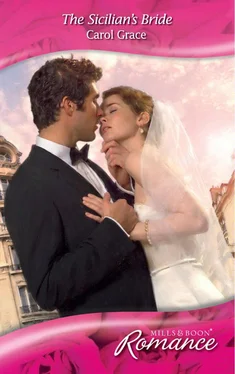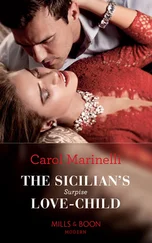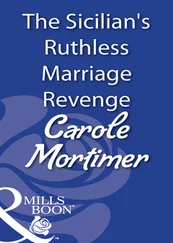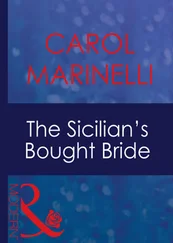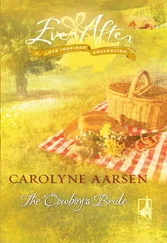“We have, but some contests are more important than others. The Gran Concorso Siciliano del Vini is coming up in a few weeks. We plan to take away a gold this year.”
He didn’t want to brag or look overconfident. But this was going to be their year. Winning the medal and getting the Azienda back. Two victories that would erase the losses of the past once and for all. He knew it. He felt it. If he kept a hawk eye on the land, the vines and the wine production, they’d end up with the prize and the best dessert wine Sicily could produce too.
He was proud of their wine, proud of the medals they’d won. Nothing wrong with letting her know that. He turned to Isabel. “Now that you’ve seen the place, it’s time to go.”
“I haven’t been upstairs yet.”
What could he say? You won’t like it? Knowing her, that would guarantee she’d insist she would like it. She didn’t yet know about the bedroom off the kitchen where the servants once lived, and he sure wasn’t going to tell her. Instead he led the way up the narrow staircase, Isabel following behind him. There it was, a small room with a narrow sagging mattress on a metal frame. And better yet, a huge gaping hole in the ceiling.
“It needs major roof repair,” he said. As if she hadn’t noticed. No one in their right mind could say anything positive about a hole in the roof. But she did.
“Why?” she said. “If it doesn’t rain, it will be wonderful to look up at the stars at night.”
He groaned silently. There was no point in telling her bats would fly into the room. She’d probably welcome them. He’d never met anyone like her. There wasn’t a woman in Sicily who’d accept living under these conditions. What was it about this woman? Was she really capable or just stubborn and unrealistic?
“I know it needs work,” she said, a trace of defiance in her voice. “I know there’s no running water or electricity, but, as I said, I’m not afraid to pitch in and get things done. And I’d like to hire someone to help me.”
“That won’t be easy,” Dario commented. It was true. All the able-bodied men were at work in the vineyards. “Most people are busy with the crush.”
“Which reminds me, I want to see the vineyard.”
“Of course.” That, Dario thought, could help matters; she’d see how withered the vines were.
They went back downstairs and out into the hot sunshine where they walked up and down the path between the old vines. Dario followed behind Isabel, noticing the way her hips swayed enticingly as she walked, how the perspiration dampened the back of her neck, admiring in spite of himself her red-gold hair, which she’d tied back, gleaming in the sunlight. But only as he would admire a painting by Titian, with cool detachment. His detachment was cool until his mind jumped to the thought of her as the half-clothed subject of a lush Titian painting.
A surprising jolt of desire hit him in his chest. He’d been immune to the allure of women since his affair with Magdalena had ended so disastrously. Could his libido be alive and well again? Maybe all it took was knowing he’d finally recovered and was back in charge of his life and his vineyards. And then a glimpse of a Titian-haired heiress didn’t hurt as long as she didn’t stay too long. All he asked was for life to return to the way it was—pre-drought, pre-fungus, pre-Magdalena. He was almost there. He felt a new surge of energy, a feeling of hope close at hand, as close as the vines on either side of the path.
Dario deliberately turned his attention to picking and tasting a grape here and there, much safer than watching the woman. Another surprise—the level of sugar in the neglected fruit. Soon they could be turned into the superb dessert wine they were famous for. If. If the woman would only be reasonable. They should win the gold this year for either a red or a white. They would be back on top, and the world would be theirs again.
Finding that Magdalena was deceiving him was one thing, but losing his head over her so that he’d been negligent in running the vineyards was ten times worse. He blamed himself for the whole mess. He’d learned a valuable lesson. No matter how tempting, he would never fall for any woman again. His family didn’t believe that. They thought his turning into a loner this past year was only a phase. He didn’t think so.
This year if all went well, they could be on top again with a win at the Concorso for their Ceravasuolo. Let his family call him obsessive. He didn’t care. It was better than being careless. He buried himself in his work. It was his choice and his obligation. Someone had to worry about the wine and family’s land holdings. His father was busy in Palermo, his grandfather was sick. So that person was him. Let his sisters suggest he get out and find a girlfriend. It wasn’t going to happen. Not now. Not ever.
Isabel paused to pick some grapes and licked her lips. Even as a beginner unaccustomed to tasting wine grapes off the vine, she was struck by how sweet they were. She felt a quiver of excitement. These were special grapes. She’d read about super-sweet grapes, old grapes that had been neglected. Her grapes.
She turned to Dario, whose blue eyes were narrowed in the bright sun. “These are delicious,” she said. “Are they the same grapes that produce the famous Amarado dessert wine?”
He hesitated. Didn’t he know or didn’t he want to tell her? Finally he nodded.
She realized he didn’t want her to know. He wanted her to get discouraged and leave. Sell out to him. He was sorry she’d stumbled on her own high-quality grapes. She could tell by the way his mouth was set in a straight uncompromising line, and by the creases in his forehead that this was the last thing he wanted her to know.
“I’ve tasted that wine. It’s delicious. After I did some research on the Azienda Spendora I went out and found a few bottles of old Amarado in an upscale beverage store. It’s very expensive in the States, if you can even find it,” she said thoughtfully. “A high-end wine. It could be a huge moneymaker.”
“I wouldn’t count on it.”
She slanted a glance in his direction. He knew. He must know how valuable it was. “No wonder you want this vineyard so much. It’s because of the Amarado. I can’t believe it. These are all mine and I’ll make this superb dessert wine. I can make a go of it. I know I can. I can make money. Live off the land and show the naysayers.”
She paused, struck by the look on his face. What had she said to make him glare at her like that? A muscle in his temple twitched. Was she excessively bragging? Or was he just upset because they were hers and not his grapes? “You didn’t tell me about these grapes.”
“You didn’t ask me,” he said shortly. “Don’t get too excited,” he cautioned. “It takes more than just picking and fermenting the grapes to make a decent Amarado.”
“You don’t think I can do it. You don’t think I have what it takes.”
“Do you?”
Suddenly a shaft of uncertainty hit her. What made her think she could compete in a wine market where her competitors had been doing this for decades? Maybe she was dreaming. Maybe she was overconfident. He was right. It wasn’t going to be easy.
“Yes. I’ll make it work,” she insisted. “Why shouldn’t I?” She was proud of how certain she sounded when inside a small voice asked who she thought she was. How did she think she could compete as an outsider?
“Why? Because you can’t possibly pick your own grapes,” Dario said. “You have acres of vines. It’s backbreaking work and you have to know what you’re doing. You don’t want to do work like that. That’s not women’s work.”
Women’s work? She frowned and bit back a retort, something like Even in Sicily, haven’t you heard of equal rights, equal pay and equal opportunities?
Читать дальше
